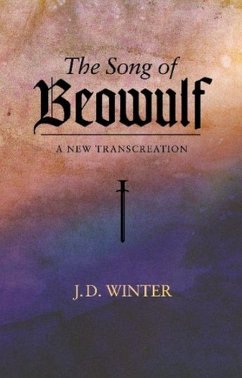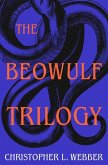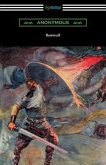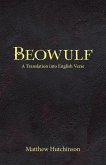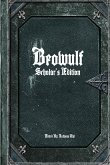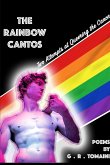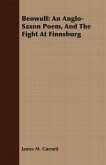An epic poem is a performance. The telling of Beowulf carries something of the days of its pre-literary composition, as it evolved as something memorised, half spoken and half sung, over many generations. The single manuscript we have, from about 1000 AD, is the end result of a great chain of poetic adaptation. Of all new versions Seamus Heaneys (1999) has made the most striking impact, in part for his willingness to experiment, to be a new scop or oral poet, to depart at times from the exact text and join the tradition when there was no such thing. The licence such an approach adopts can make for a riveting poem in itself, a work of wonder. But there is a different route to the flame of the original. J.D. Winters rendering of the Beowulf song accepts the text as historical fact, and by a gradual revelation of its deeper music, discovers an illumination from within. The voice is less his and more nearly of the time and world of the poem itself. But this is without recourse to an archaic register. It is the modern language and yet not the modern man speaking. The phrases of the text, like phrases of music with their crescendos and diminuendos, steadily and unhurriedly move towards the culmination of a powerfully fulfilling symphony. It is the expression of a simpler time than ours, and perhaps a more plain-speaking one. Yet its art was at least as sophisticated as the modern worlds. The clarity and concentration of meaning in the brilliantly alliterated half-lines can never be properly reconstructed. But a suggestion of that force and beauty, together with an underlying sense of the inexorable, may always be rediscovered. In the knock and flow of the lines, too, one can sense the poetry of a sea-faring nation. The nation is not England or Sweden or Denmark. It is an intermingled part of Northern Europe using the West Saxon dialect of the language in England to convey a mix of Scandinavian history and Teutonic legend. In this evocative transcreation the reader may come, no doubt as did the early listeners, to a simple truth behind the medley of international borders: the inevitable journey of the universal human.

